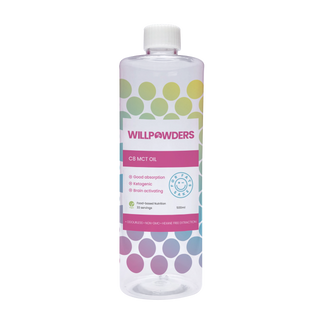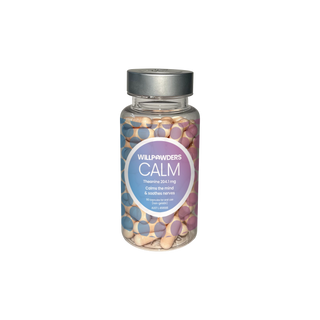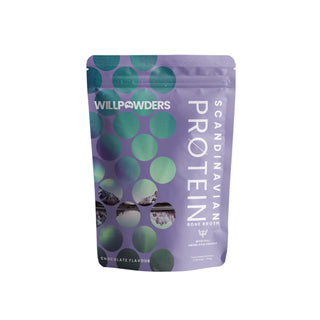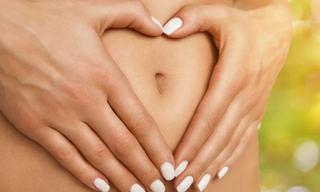

Body and Brain
How to Heal your Gut
Bloating is something that affects us all occasionally, particularly after a hearty Sunday roast. However, if a distended belly is a regular occurrence despite modest meal sizes, it might be your body’s way of signalling that something’s amiss. Many factors could be contributing to this bloating, including allergies, food intolerances, insufficient digestive enzymes, gut dysbiosis, inflammatory foods, medications, hormonal imbalances, stress, or even a weakened gut lining. The good news is that you can support your gut health through diet and lifestyle changes that nourish the entire body. Here are our top tips to support your gut health and reduce bloating.
Cut Out Potential Problem Foods
If bloating is a common issue, consider reducing or avoiding foods that tend to produce gas, such as fizzy drinks, beans, lentils, onions, cabbage, broccoli, sprouts, cauliflower, and turnips. Some individuals may also benefit from limiting sugar and “sugar-free” foods that contain artificial sweeteners like sorbitol, maltitol, and aspartame, as these are not fully digestible and can contribute to bloating.
Food intolerances are another common cause of bloating, with wheat, gluten, and dairy often being potential triggers. You might try an elimination diet to identify any specific intolerances or sensitivities, or a food intolerance or microbiome test for personalised insights on gut health. Soaking beans before cooking and lightly cooking vegetables may also help to reduce gas production.
Support the Gut Lining
The gut lining can become compromised by unhealthy foods, stress, medications, and antibiotics, allowing toxins to pass into the bloodstream and cause inflammation. Here are some dietary additions that may help support your gut lining:
Bone Broth
Bone broth, often known as stock, is nutrient-dense and rich in amino acids, collagen, and gelatin, which may support the integrity of the gut lining and help with the body’s inflammatory responses. Incorporating bone broth into your daily routine is easy and soothing—just enjoy it as a warm drink or as a base for soups and stews.
You might also want to give WillPowders super clean and nutrient dense bone broth protein powders a whirl.
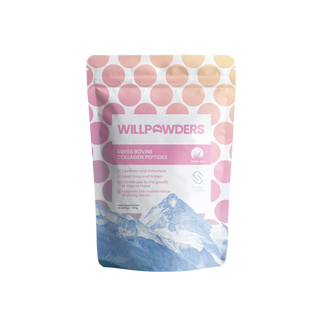

Collagen Peptides
Collagen is naturally present in the gut’s lining, and supplementing with collagen peptides may support gut health. Bovine collagen is particularly rich in essential amino acids like proline, hydroxyproline, and glycine, which may promote a healthy gut lining and encourage balanced inflammatory processes. Look for hydrolysed collagen (peptides), as it is easier to digest, making it gentler on the stomach. Research suggests glycine, which collagen peptides are rich in, may help maintain the gut lining.
Molkosan & Aloe Vera Juice
Molkosan, a whey-based liquid rich in lactic acid, combined with aloe vera juice, may support the growth of beneficial gut bacteria. Aloe vera has been studied for its potential soothing properties on the digestive tract, and many find this combination helpful for managing bloating. Studies show aloe vera may support digestive health.
Digestive Enzymes for Better Digestion
Digestive enzymes help break down fats, proteins, and carbohydrates so the body can absorb nutrients efficiently. When enzyme levels are low, undigested food can contribute to bloating and discomfort. Full-spectrum digestive enzyme supplements may help ease these symptoms, especially if they contain ox bile, which aids in fat digestion. Taking digestive enzymes before meals may support improved digestion.
Nurture Your Gut Microbiome
Your gut houses trillions of microorganisms—bacteria, fungi, and viruses—that play a role in immunity, digestion, and mental health. A balanced gut microbiome may support better digestion and reduce food sensitivities. Increase your intake of gut-friendly fermented foods like kombucha, kefir, yoghurt, kimchi, and sauerkraut. As not everyone tolerates fermented foods well, start with small amounts. A varied diet rich in whole foods, vegetables, herbs, and spices can also support a balanced gut microbiome.You can read more about the fascinating world of the gut microbiome here.
Practice Time-Restricted Eating
Much like ourselves, the gut and its resident microbes benefit from periodic breaks to function optimally. If you eat frequently, your digestive system may not get adequate time to process food and clear waste. Time-restricted eating, or intermittent fasting, allows the body a break from digestion, providing an opportunity for cellular clean-up processes. Try not to eat for at least four hours before bedtime, and consider delaying breakfast by 1-2 hours after waking to give your digestive system a 12-hour rest period. Research suggests intermittent fasting may benefit gut health.
The Takeaway
Digestive discomfort, such as bloating, can impact overall mood, health, and quality of life. By understanding how your body works and making simple dietary and lifestyle adjustments, you can nurture a happier, healthier gut. A personalised approach is always best, so consider seeking professional advice if symptoms persist.
With these habits and dietary adjustments, you may be well on your way to reducing bloating and supporting long-term gut health.
Further Product Information
Use daily. Add to any hot or cold liquid or baked goods. Suggested daily consumption 1-15g. If you are pregnant, breastfeeding or taking medication, please consult a health practitioner. Not suitable for children under 5. Not suitable for vegetarians or vegans.
Disclaimer
Our blogs are written with love in the hope that they go some way in helping you feel like the rockstar you are, and whilst we do our due diligence, research like maniacs and fact check our stuff, we know everyone’s journey is different. They are intended to educate and empower you, not usurp medical advice. We would never advise you to stop, adjust, or modify any prescription medication without the direct supervision of your healthcare practitioner, but don’t be afraid to talk to your doctor about your new found knowledge, brought to you by the marvels of nature because they don't know everything!
 Collagen
Collagen
 Protein
Protein
 MCT
MCT
 Electrolytes
Electrolytes
 Vitamins & Minerals
Vitamins & Minerals
 Nootropics
Nootropics
 Accessories
Accessories
 Books
Books








